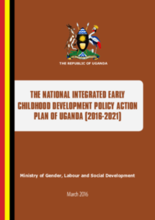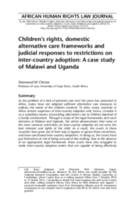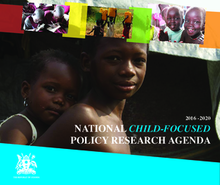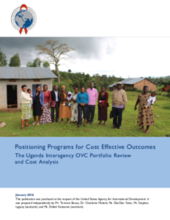This country page features an interactive, icon-based data dashboard providing a national-level overview of the status of children’s care and care reform efforts (a “Country Care Snapshot”), along with a list of resources and organizations in the country.
demographic_data
childrens_living_arrangement
children_living_without_bio
social_work_force
key_stakeholders
Key Stakeholders
Add New DataOther Relevant Reforms
Add New Datadrivers_of_institutionalisation
Drivers of Institutionaliziation
Add New Datakey_research_and_information
Key Data Sources
Add New DataThe Children Act (Uganda)
Country Care Review: Uganda
Prevalence and number of children living in institutional care: global, regional, and country estimates
The National Integrated Early Childhood Development Policy Action Plan (2016-2021) of Uganda
Catholic Care for Children in Uganda: A Family for Every Child - Findings from a Midterm Evaluation
Acknowledgements
Data for this country care snapshot was contributed by a consultant with the Data for Impact (D4I) Project at Palladium Group LLC.
Displaying 271 - 280 of 418
Large scale studies published in the 1990s and early 2000s generally showed that significant educational disparities existed based on orphan status and a child's relationship to the head of the household. Since the data relied on by these studies were collected, the global community has conducted major campaigns to close these gaps, through the Education for All (EFA) and Millennium Development Goals (MDGs). This study examined these factors using eight country-years from five sub-Saharan African countries (Malawi, Mozambique, Niger, Uganda, and Zimbabwe).
Lawmakers passed a bill this week that requires foreigners seeking to adopt Ugandan children to live in the country continuously for at least one year before applying, thus ending the quicker route of claiming legal guardianship.
The National Integrated Early Childhood Development (NIECD) policy of Uganda seeks to address multi-dimensional needs of young children through building more effective and coherent efforts among sectors to achieve positive early childhood development out comes for all children.
In this video Child's i Foundation works with Care 4 Kids, an orphanage for 53 children, which wants to reintegrate children back into families but had challenges convincing the families that they could provide better care. Child's i Foundation organised an open day for families and invited parents who had taken their children back from Rafiki to explain the benefits of children growing up in families.
This video by Child's i Foundation in Uganda document's the journey of a little girl, Praise, from being abandoned to being placed into to a permanent family. The video shows the tracing process and temporary placement with a foster car
Five years ago, Child's i Foundation founder Lucy Buck set up a 25-bed 'transitional facility' to prove it was possible to place children in need of care into permanent families. Childs' i Foundation piloted an 'emergency care pilot' to see i
Through the ‘InvestInUGChildren’ campaign, UNICEF has partnered with media outlets to highlight issues such as malnutrition, hunger, domestic violence, early marriage, poor health, and education in Uganda.
Through a study of the legal frameworks and court decisions of Malawi and Uganda, this article demonstrates that some of the most common restrictions on inter-country adoption do not serve the best interests and rights of the child.
Although not conclusive or exhaustive, this agenda represents a bold attempt to identify and prioritise key areas/research themes stemming from the Situation Analysis (2015) and other available evidence on the status of children in Uganda.
The purpose of the review is to provide evidence to support planning that will maximize the impact of the PEPFAR Uganda OVC portfolio.




